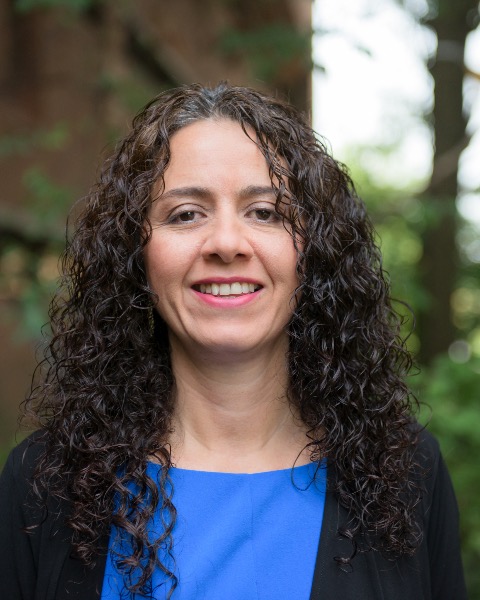Back
Social Welfare Policy and Policy Practice
Political Ideology, History and Policy
The Threat of Teaching “Actual” History: The Link Between History and Policy
Friday, November 11, 2022
3:00 PM – 3:30 PM
Location: Carmel

Marcela Sarmiento Mellinger, MSW, PhD
Associate Professor
UMBC
Baltimore, Maryland, United States
Author and Presenter(s)
Overview: This presentation will provide an overview of the over 130 bills introduced throughout the U.S. intended to re-write the history of the country. What is “off limits” and what faculty may be required to teach will be addressed. Implications for the future of social work education will be highlighted.Proposal text: Studying history helps us understand the present and it provides us with insight into the future (Špiláčková, 2016). According to Van Straaten et al. (2015), by allowing us to assess, explain, and predict, history can be “socially relevant” (p. 480), but this can only happen if our history is based in reality. For social work faculty engaging students in the study of history can be challenging; many do not see its relevance, nor do they see its value in understanding what is happening today (Hayden & Harris, 2010; Van Straaten et al., 2015). Coupled with this is the task of promoting interest in policy and helping students understand the link between history and current policies. Students often come to the profession because they want to “help” but do not think of advocacy or social policy as viable career paths (Henman, 2012). Many are simply skeptical of the impact they can have on social policy (Henman, 2012). Today, we face an additional challenge, the silencing of historical facts that make some groups “uncomfortable” or that are perceived as divisive; a topic that presents the perfect opportunity to connect history with policy. According to Sachs (2022), over130 bills have been introduced in 35 states, limiting what schools can teach in a myriad of subjects, including history and politics; these “gag” orders include K-12 and higher education. Considering this recent trend, this presentation will provide an overview of bills aimed to silence those teaching the entirety of U.S. history.
A review of legislation being introduced throughout the U.S. to appease those who think that “divisive” or “anti-American” ideas are being taught in classrooms will be presented. The review will address three main areas: 1) the content that is said to be “off limits” for educators; 2) the things that students “must” be taught; and 3) penalties for educators and schools if these potential laws are violated. For example, teaching that institutions in the U.S. are fundamentally or systematically racists is banned in some bills; other bills ban honest discussion about the history of slavery and the role the U.S. played in the systematic oppression of those enslaved; others go as far as banning schools from hiring faculty who use critical race theory in their research or teaching. Furthermore, some bills state that students “must” be taught concepts believed to be “pro-American” and ban any teaching perceived to conflict with the principles upon which the U.S. was founded (e.g., socialism, totalitarianism, communism, etc.). These restrictions, if made law, will have significant implications for education, including the threat to academic freedom, the infringement on students’ right to learn, as well as the loss of funding. Simply, these gag orders could present a threat to social work education, a profession that espouses social justice as one of its core values. This presentation aims to bring awareness of these bills to encourage advocacy, but also seeks to encourage educators to use these bills as evidence of the importance of history and its links to current policies.
A review of legislation being introduced throughout the U.S. to appease those who think that “divisive” or “anti-American” ideas are being taught in classrooms will be presented. The review will address three main areas: 1) the content that is said to be “off limits” for educators; 2) the things that students “must” be taught; and 3) penalties for educators and schools if these potential laws are violated. For example, teaching that institutions in the U.S. are fundamentally or systematically racists is banned in some bills; other bills ban honest discussion about the history of slavery and the role the U.S. played in the systematic oppression of those enslaved; others go as far as banning schools from hiring faculty who use critical race theory in their research or teaching. Furthermore, some bills state that students “must” be taught concepts believed to be “pro-American” and ban any teaching perceived to conflict with the principles upon which the U.S. was founded (e.g., socialism, totalitarianism, communism, etc.). These restrictions, if made law, will have significant implications for education, including the threat to academic freedom, the infringement on students’ right to learn, as well as the loss of funding. Simply, these gag orders could present a threat to social work education, a profession that espouses social justice as one of its core values. This presentation aims to bring awareness of these bills to encourage advocacy, but also seeks to encourage educators to use these bills as evidence of the importance of history and its links to current policies.
Learning Objectives:
- Participants will identify the main themes in the bills that have been introduced seeking to restrict the teaching of the legitimate history of the U.S. and its role in oppression and discrimination.
- Participants will evaluate the implicit value these bills give to history as they seek to re-write it.
- Participants will be able to assess possible steps to advocate against these bills in their own states.
